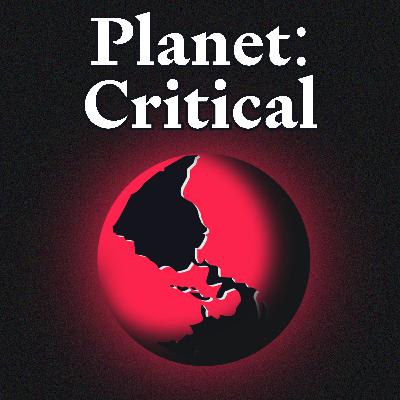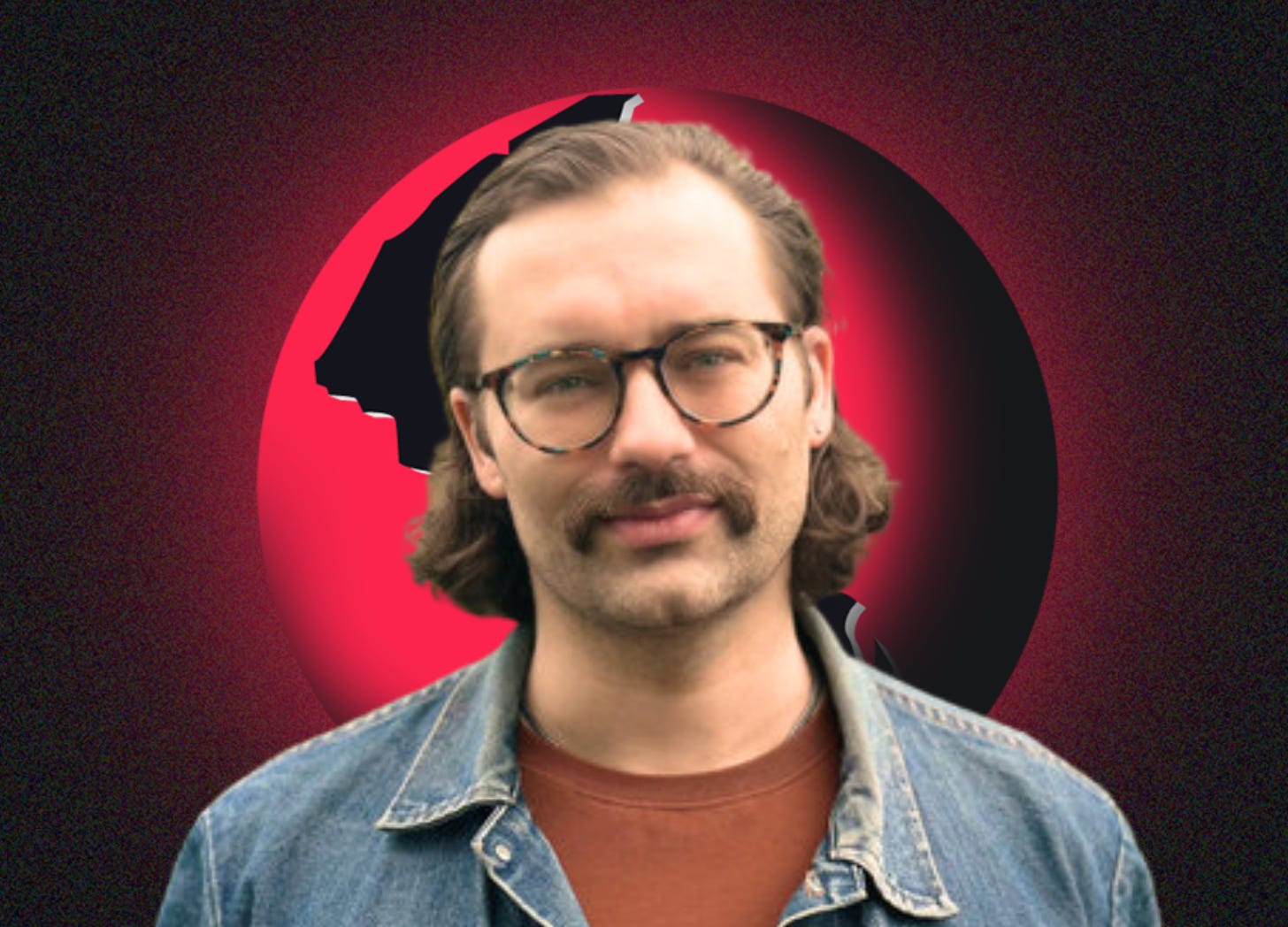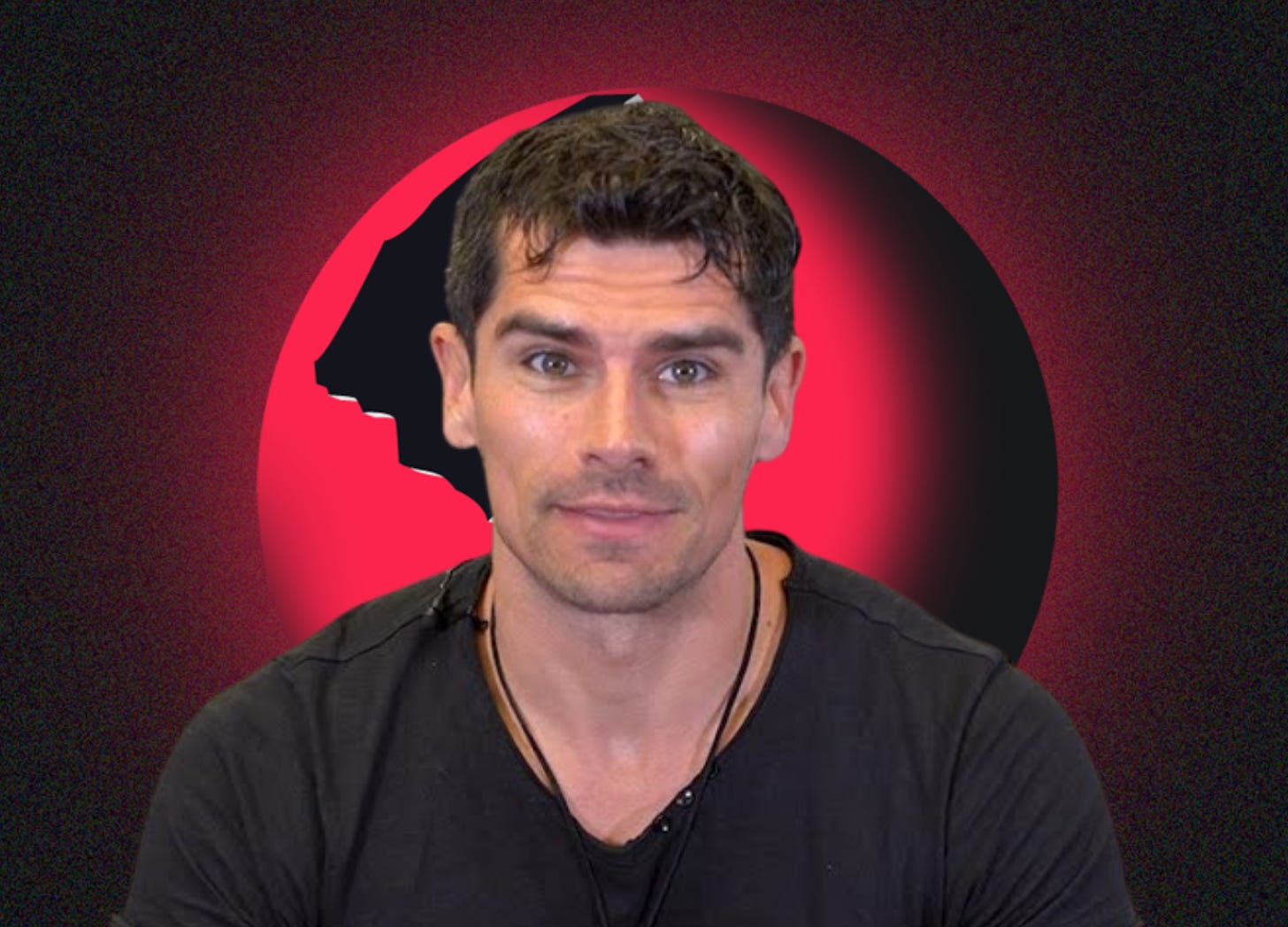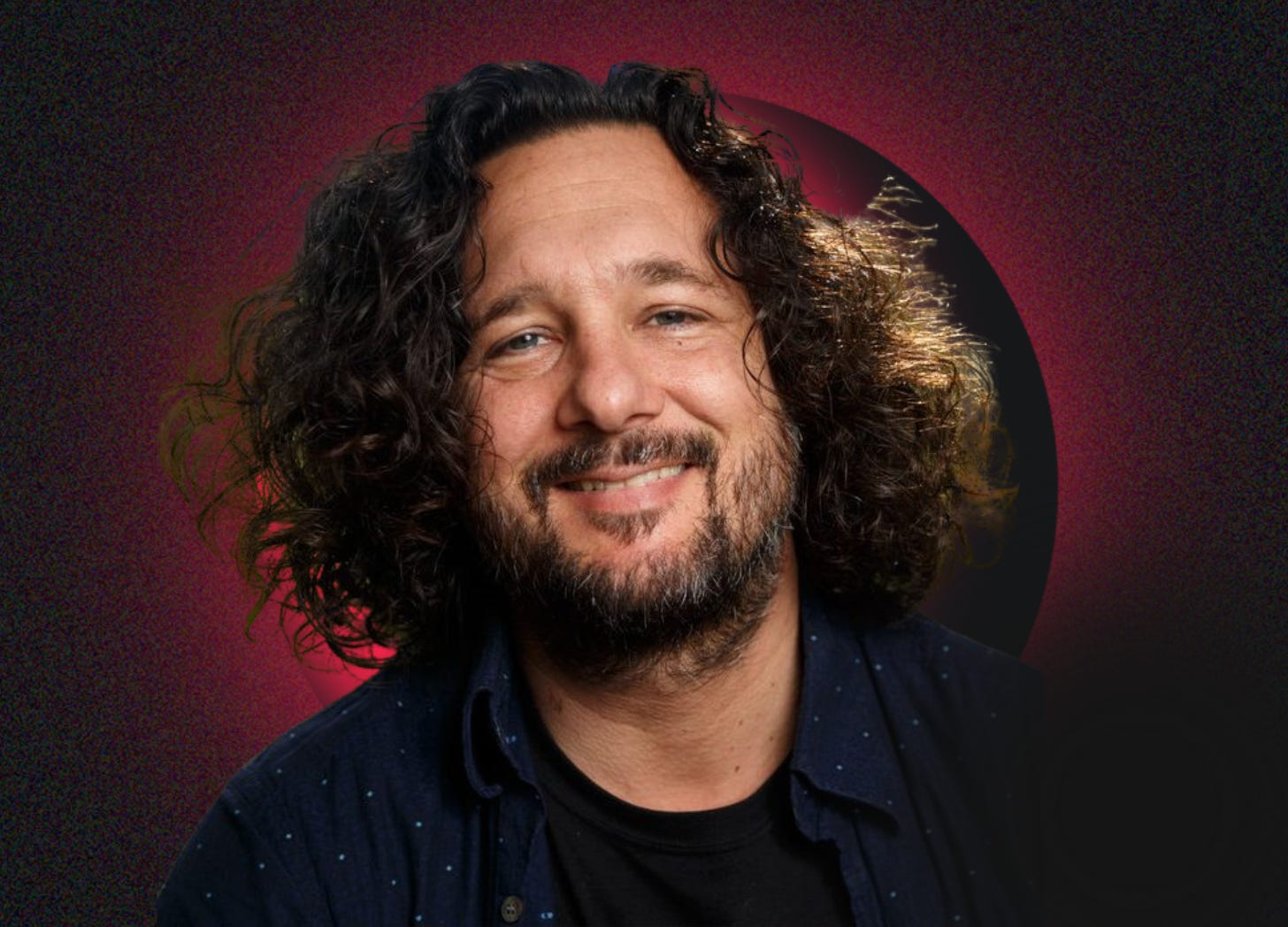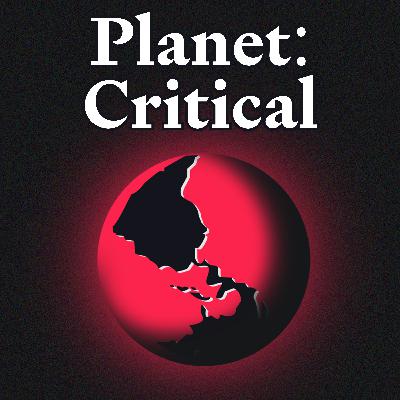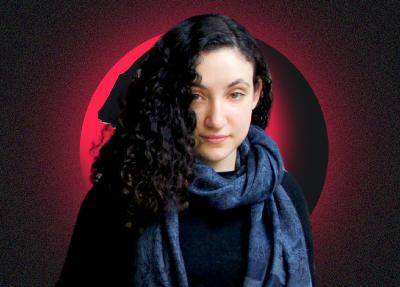Discover Planet: Critical
Planet: Critical

Planet: Critical
Author: Rachel Donald
Subscribed: 312Played: 13,322Subscribe
Share
© Rachel Donald
Description
Planet: Critical is the podcast for a world in crisis. We face severe climate, energy, economic and political breakdown. Journalist Rachel Donald interviews those confronting the crisis, revealing what's really going on—and what needs to be done.
www.planetcritical.com
www.planetcritical.com
362 Episodes
Reverse
Doctors are tasked with an impossible job: Keep our bodies healthy while Earth’s collapses. Our healthcare systems are already under-funded and over-stretched, and that’s before we throw in the drastic changes in disease and mortality that warming temperatures are unleashing around the world. That all this falls on the shoulders of healthcare workers is another symptom of the madness of modernity. Each and every policy is responsible for our healthcare, not just the industry itself.Sharon Friel is a Professor of Health Equity at Australia National University, researching how planetary health and human health intersect. She joins me to explain the state of health in the coming decades, which institutional policies are already preventing effective treatment, and how our atomistic relationship to cause and effect with regards to climate change is reflected in the biomedical paradigm itself. We discuss how medical curricula around the world can and must change, the necessary integration of different epistemologies, and Sharon reveals what is sending the medical insurance industry into a panic—revealing just high Earth’s fever is climbing. Get full access to Planet: Critical at www.planetcritical.com/subscribe
Is China the next world leader? Ken Hammond is a professor of history at New Mexico State University, where he specializes in the history of China in the early modern period. Author of China's Revolution and the Quest for a Socialist Future, Ken joins me to explain the stark differences in how China is deploying its newfound wealth and political power within its own borders and throughout the Global South. We also discuss the persecution of the Uyghurs, with Ken and I taking very different positions about how nation states should manage diversity within their borders. We end up debating whether or not a sustainable, socialist future can ever be achieved through centralised forces—and what the possible fallout could be.Planet: Critical investigates why the world is in crisis. Join subscribers from 186 countries to support independent journalism. Get full access to Planet: Critical at www.planetcritical.com/subscribe
Imagine if we rolled up our sleeves instead of pointed our fingers?Jessica Hernandez is an indigenous climate scientist and author of Growing Papaya Trees. Her work reveals that the roots of our planetary crisis lies in the violence of colonialism and neo-colonialism. In this gentle and humorous conversation, Jessica explains what it means to be a displaced indigenous person, why the Lands need people to be well, and the worldviews impeding us as a global collective to take the necessary action to protect Earth and each other. We discuss the recent creation of a global indigenous identity, how renewable energy is encroaching on indigenous rights, our shared suspicion of the “just transition”, the common failures found amongst all humans, and how Western individualism has promoted a culture of blame when what we need, more than ever, is to take accountability for our world today. Planet: Critical investigates why the world is in crisis. Join subscribers from 186 countries to support independent journalism. Get full access to Planet: Critical at www.planetcritical.com/subscribe
The climate crisis is causing an invisible health crisis. The number one cause of neurodegenerative disease is the environment. And our environment is changing—releasing bacteria, neurotoxins and pathogens into our warming world which can change the very matter in our brains.Clayton Aldern is a neuroscientist and environmental reporter at Grist. In his 2024 book, The Weight of Nature: How a Changing Climate Changes Our Brains, Clayton revealed how the climate crisis intersects with our psychological, mental and brain health, warning that this health crisis, if left untreated, could upturn our lives. In this astounding episode, he walks through the different ways climate intersects with brain health, revealing the increased risk of a number of different diseases, what triggers them, and the absolute failure of policy-makers to address it. We discuss stress, violence, aggression, and using our bodies as an empathetic tool to understand the pain of others, with Clayton painting an optimistic picture about the power of story-telling to change the world. Planet: Critical investigates why the world is in crisis. Join subscribers from 186 countries to support independent journalism. Get full access to Planet: Critical at www.planetcritical.com/subscribe
“There is nothing either good or bad, but thinking makes it so.”— Hamlet, Act II, Scene 2The two hemispheres of our brain collaborate to produce a coherent understanding of the world—at least, that’s what they’re supposed to do. In his groundbreaking book, The Master and His Emissary, neuro-philosopher and psychiatrist, Iain McGilchrist, proposed that our culture has been captured by the left hemisphere, whose dogmatic, technical and irrational way of processing information leads it to manifestly dangerous conclusions about the way the world works. Importantly, the left hemisphere never changes its mind.In one of the widest-ranging conversations on Planet: Critical to date, Iain explains how we came to lose sight of the bigger picture by forsaking the intuition, creativity and intelligence of the right hemisphere. We discuss how our relationship to language makes and unmakes the world, the search for meaning, human agency, relationality, morality, art and the divine, with Iain clearly spelling out a path to human fulfilment—which may very well be the only thing which can save Earth from the worst of us. Planet: Critical investigates why the world is in crisis. Join subscribers from 186 countries to support independent journalism. Get full access to Planet: Critical at www.planetcritical.com/subscribe
Gordon Katic is the founder of the award-winning podcast production company, Cited Media. This week, they’re launching Green Dreams, the new season of their flagship podcast which tells stories of radical environmental thinkers and their dreams for our green future, asking: Should we make those dreams reality, or are they actually nightmares?Gordon contacted me to arrange a mutual podcast shout-out, and instead I invited him on the show to discuss both the season and their innovative research method which prioritises and plural and collaborative approach. Gordon braids in much of what he’s learned into this conversation, in which we tackle some of the historical and current fallacies of the environmental movement. He shines light on the cult of the Western environmental intellectual whilst holding in high esteem the possibility for a bright future—his own realistic and determined green dream.Planet: Critical investigates why the world is in crisis. Join subscribers from 186 countries to support independent journalism. Get full access to Planet: Critical at www.planetcritical.com/subscribe
Collapse has historically benefited the 99%.That’s the amazing conclusion of Luke Kemp, author of Goliath’s Curse: The History and Future of Societal Collapse. Luke is a research associate at the Centre for the Study of Existential Risk at the University of Cambridge, and has spent the past five years studying the collapse of civilisations throughout history. He joins me to explain his research, detailing the difference between complex, collective civilisations and what he calls “Goliaths”, massive centralising forces by which a small group of individuals extract wealth from the rest through domination and the threat of violence. Today, he says, we live in a global Goliath.In this astounding conversation, Luke takes us from the Ancient times to the modern day, revealing the root causes of collapse and paralleling them what we’re living through today. He explains the egalitarian nature of our species, and shines new light on what a future could look like free from today’s global Goliath. He reminds us all that we tend to view collapse through the eyes of the 1%, those who have the most to lose, and gives startling accounts of how populations bounced back after their domineering rulers fell. For a conversation about the collapse of the modern world, this conversation is as hopeful as it is brutal.Planet: Critical investigates why the world is in crisis. Join subscribers from 186 countries to support independent journalism. Get full access to Planet: Critical at www.planetcritical.com/subscribe
How can we become good ancestors? Permaculturist and educator, Kara Huntermoon, says the hobbies we pick up now can be skills we pass on to our children, even if we never have to use them ourselves. In this wide-ranging and empathetic conversation on relationality, intergenerational solidarity, and hard work, Kara explores how community sufficiency practiced properly creates the common ground in which we can plant the future. This conversation weaves the importance of our relationships with the increasing political alienation experienced by many on the left, with Kara examining how to find allies in those our political binaries would deem enemies. Braiding feminism with back-breaking work, Kara invites us all to remember that there are always different worlds possible, but it's only if you get your hands dirty and do the work that they will grow from the soil.Planet: Critical investigates why the world is in crisis. Join subscribers from 186 countries to support independent journalism. Get full access to Planet: Critical at www.planetcritical.com/subscribe
How we create knowledge is as important as the knowledge itself. This is the message of this week’s guest, Aboriginal scholar and author, Tyson Yunkaporta. In his explanation of the importance of learning through living, and living with learning, Tyson points to the how the discourse around decolonisation has granted expertise based on identity rather than experience. He highlights how indigenous thinking is fundamentally consensus building, mirroring the Western scientific method, and warns that neoliberal thinking has infected what should have been a radical transformation, creating individuals who consider themselves fully contained “little corporations”.In this unflinching and compassionate conversation, Tyson weaves the culture wars, knowledge production, indigenous science, landscapes and the body to reveal the mismatches between how we think and how we live, which have opened wounds in the collective body which act as voids into which our potential solidarity falls. This is a dialogue on truth, kinship and action, in which Tyson gives one of the most honest accounts of where the best of intention has gone wrong in recent years, delivering a call to refuse these narratives of separation between ourselves, our kinfolk and the great Earth upon which we all depend. Planet: Critical investigates why the world is in crisis. Join subscribers from 186 countries to support independent journalism. Get full access to Planet: Critical at www.planetcritical.com/subscribe
Is the world even collapsing?Joseph Tainter is a Professor at Utah State University and the author of The Collapse of Complex Societies. He explains on this episode that collapse happens when a civilisation experiences a diminishing return on complexity, the fact that it takes more capital, more energy, more resources to maintain society until eventually that maintenance is no longer useful.We discuss his research and apply it to today’s world, linking in energy, technology, even geopolitical order, with Joseph—surprisingly, despite all the evidence that points to this moment in history as truly exceptional given Earth’s systems breakdown—stating that there is nothing special about the world we live in and its precarious future. Planet: Critical investigates why the world is in crisis. Join subscribers from 186 countries to support independent journalism. Get full access to Planet: Critical at www.planetcritical.com/subscribe
We’ve been protesting for decades. Is it time to escalate?Rowan Tilly is an elder of the British peace and environment movements. She has risked jail multiple times to raise awareness of the atrocities carried out against human beings and the planet. All of her direct action is non-violent, and she is deeply committed to an activism which provokes the public to confront the state’s violence. I am extremely grateful to Rowan for her activism and commitment over the years. I am especially grateful that she was open to recording this episode in which I challenge the current belief that non-violence is the only way to achieve our goals.In this stark and compassionate episode, we discuss the traditional tenets of non-violence, their efficacy and their results. We hold different positions of what the future of activism should entail, and go deep into the weeds of morality, violence itself, and different cases of resistance from all around the world.This episode went out to paid subscribers only yesterday because I ticked the wrong box. Apologies, everyone! Get full access to Planet: Critical at www.planetcritical.com/subscribe
All of our industries are going to have to shrink. But how do we shrink the good ones?Martin Hensher is a health economist and a Professor of Health Systems Sustainability at the University of Tasmania. He’s spent years researching how to create a degrowth model for the health industry—and why it will be better for people as well as our planet. Martin argues that the way we currently run our healthcare is another symptom of overconsumption, explaining when healthcare benefits and healthcare expenditure actually decouple. This is a fascinating episode in which Martin interweaves the health of the planet’s body with our own, providing a vision for a sustainable, global healthcare industry which doesn’t depend on economic growth, inequality, or over-extraction. He explains we can save lives and prevent disease—but to stay within our planetary boundaries, we’re going to have to transform how we do that. Planet: Critical investigates why the world is in crisis. Join subscribers from 186 countries to support independent journalism. Get full access to Planet: Critical at www.planetcritical.com/subscribe
Women’s bodies have always been the cornerstone of reproduction. So has Earth’s. It’s why the enclosure and appropriation of both is fundamental to the accumulation of the capitalist class.On this extraordinary episode, I interview Marxist-feminist scholar, Silvia Federici, author of Caliban and the Witch, a phenomenal book which articulates how capitalism did not naturally evolve from feudalism, but necessitated the violent displacement of women’s power in their communities and control over their own reproduction. We discuss this in the context of women’s rights being violated all around the world today as we enter a period of resource scarcity, and why it is therefore imperative that the Western feminist movement recover this analysis to create an effective resistance movement. Planet: Critical investigates why the world is in crisis. Join subscribers from 186 countries to support independent journalism. Get full access to Planet: Critical at www.planetcritical.com/subscribe
Ask anyone anywhere what’s the leading cause of global heating and they’ll tell you: fossil fuels. But what if we’re all wrong? Gerard Wedderburn-Bisshop is a scientist for the World Preservation Foundation and worked as a Principal Scientist with Queensland Government Natural Resources, using satellite data to monitor three decades of vegetation cover and broadscale deforestation. In February 2025, he released a paper showing how the IPCC is using different models to calculate the emissions from fossil fuels and animal agriculture. Gerrard researches shows, when we use the same model for both, animal agriculture becomes the biggest driver of global heating. In this episode, Gerard explains his research and other problems with emissions calculation, including how deforestation is disregarded and methane is misrepresented. He calls all of this inconsistent emissions accounting—and it could be leading policy-leaders astray. Planet: Critical investigates why the world is in crisis. Join subscribers from 186 countries to support independent journalism. Get full access to Planet: Critical at www.planetcritical.com/subscribe
How do we survive?Max Wilbert is a long-time activist who spent the past few years defending Thacker Pass, and recently joined CELDF to as part of their new strategy to build out community resilience. I first interviewed Max on why techno-optimism won’t save the day. As with many compatriots around the world, the answer he’s landed on as to what will is local action.In this winding and weaving conversation we discuss the new bill on the floor of the New York State Senate which would give rights of nature to all water in the state before examining legal strategies more broadly under the umbrella of climate activism. We then examine Empire’s death throes and how it is violently grasping at power to maintain itself. We discuss violence and defence, patriarchy and permaculture, showing how resilience is an act of resistance in a system which has spent the past 500 years ripping apart our communal social fabric. This is a conversation about how to reweave a tapestry that had been lost to us, and why doing is of vital importance to survive what’s coming. Planet: Critical investigates why the world is in crisis. Join subscribers from 186 countries to support independent journalism. Get full access to Planet: Critical at www.planetcritical.com/subscribe
What makes humans special?Nothing. But a small band of us in the Western hemisphere have inculcated ourselves over thousands of years to believe in our supremacy over the natural world. Christine Webb, primatologist at Harvard University, argues this unique arrogance is at the root of our ecological crisis in her forthcoming book, The Arrogant Ape.This is a fascinating conversation, with Christine revealing how almost all of the characteristics which we human beings have claimed distinguished ourselves from our kinfolk have eventually been found in other species. Perhaps most importantly, she explains how this culture of arrogance is learned by young children somewhere around the age of 4, who before that do not discriminate between humans and other species, meaning we could very swiftly learn to enjoy the kind of relationship with the more-than-human world that seems to come naturally to us. Although, of course, it would bring all of industrialised modernity tumbling down…Planet: Critical investigates why the world is in crisis. Join subscribers from 186 countries to support independent journalism. Get full access to Planet: Critical at www.planetcritical.com/subscribe
There’s more information than ever — but we can’t agree on what it means.We think of language as a tool of communication. But it’s so much more than that. Language builds worlds and shapes realities; language is how we make sense of what we experience, and that sense-making is always done in partnership with each other. Language is the mechanism by which we develop shared understandings of reality. So why can’t we seem to find common ground with each other? Damien Williams is an assistant professor of philosophy and data science, and he joins me to tackle that question, explaining we live in a world of “bespoke realities” whereby people’s lived experiences are seemingly so different they cannot even come to a mutual understanding of the parts that are objective — like science. He explains why other people’s realities feel threatening, and offers key insight as to how we can build bridges with those who disagree with us. Damien and I only began to scratch the surface of this complex and critical topic. If you’d like to see this conversation continued as a roundtable with more interlocutors, please leave a comment below! Planet: Critical is 100% independent and community-powered. If you value it, and have the means, become a paid subscriber today. Get full access to Planet: Critical at www.planetcritical.com/subscribe
Don’t Talk About Politics!That’s the title of neuroscientist and political theorist Sarah Stein Lubrano’s first book. A phenomenal and heavily researched foray into why debate is a useless form of political communication, why citizens of the Western world are particularly prone to disbelieving their neighbour’s lived experience, and the strategies which do work when on the campaign trail, Don’t Talk About Politics explains why the very art of conversation is breaking down with our political systems—and what to do about it.Sarah explains all this and more on the episode, explaining how our brains are atrophying along with our communities, the reason activists score happier than their peers on psychological tests, and how to begin growing the roots of a new political system on our very streets. We discuss her research in the context of the phenomenal community building and resistance movements I documented for Planet: Coordinate across Colombia and Ecuador, adding the lens of inter-relationality as a resource which remains much more available elsewhere. I interviewed Sarah in 2023 when she was deep in research mode for the book so it was a pleasure to have her come back on and reveal her findings, strategies and own lived experience of how to talk about politics—successfully—in the 21st century. Planet: Critical investigates why the world is in crisis. Join subscribers from 186 countries to support independent journalism. Get full access to Planet: Critical at www.planetcritical.com/subscribe
The status quo won’t survive. Neither will we if we’re not willing to change. In this phenomenal conversation with powerhouse Celine Semaan, an artist, author and cofounder of Slow Factory, we explore why change is understandably terrifying—and why it’s now or never that we do it. In this wide-ranging and nuanced discussion we explore the big picture, colonialism, why systems are slow-moving, and the emotional load of confronting what’s happening. Celine reveals why most climate organisations are failing and how Slow Factory has set themselves apart by designing with risk at the centre. Slow Factory is a fascinating organisation which produces open source educational courses, information and comms for other NGOs in the space. We I discuss their agile model which has helped them break out in the climate space, and how they are now looking to transition to a more on-the-ground approach to community organising. Planet: Critical investigates why the world is in crisis. Join subscribers from 186 countries to support independent journalism. Get full access to Planet: Critical at www.planetcritical.com/subscribe
Does nature have a plan?It’s a lovely thought. But we’re going to have to be more accountable than that. In this achingly beautiful conversation with writer Willow Defebaugh, co-founder and Editor of Atmos Magazine, we discuss how it is we can approach healing together. We explore the designs found in nature and how, with humility, we can learn to be inspired by those designs, reimagining human society. We question the impulse to demarcate moral purity and evil, suggesting that much of our human ills may very well be the result of following biological impulse. We investigate how to talk to each other, especially those we disagree with, and discuss the sad state of Leftist affairs which can be boiled down to, at times, a politics of narcissism. Finally, we dig deep into embodiment, how to feel and to hold and to trust and to network, together. How to see one another as connected bodies rather than political identities and, from there, how to share space with the wondrous more-than-human world which surrounds us.Planet: Critical investigates why the world is in crisis. Join subscribers from 186 countries to support independent journalism. Get full access to Planet: Critical at www.planetcritical.com/subscribe


